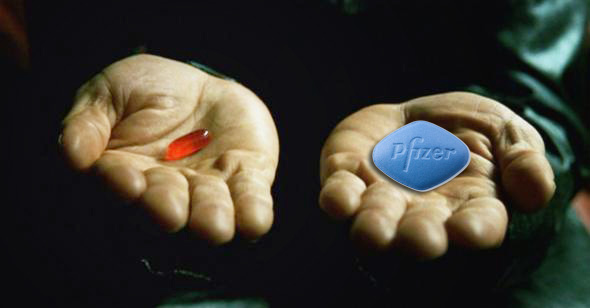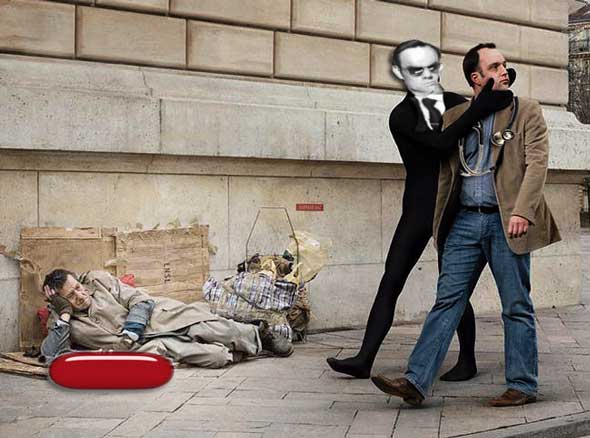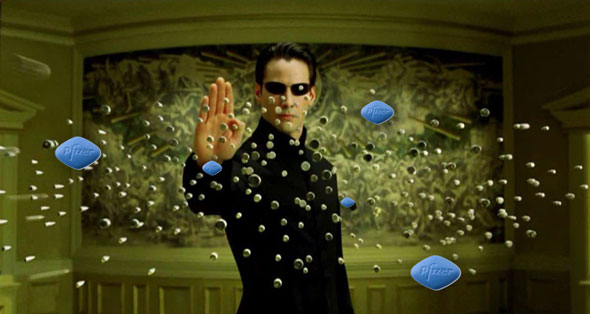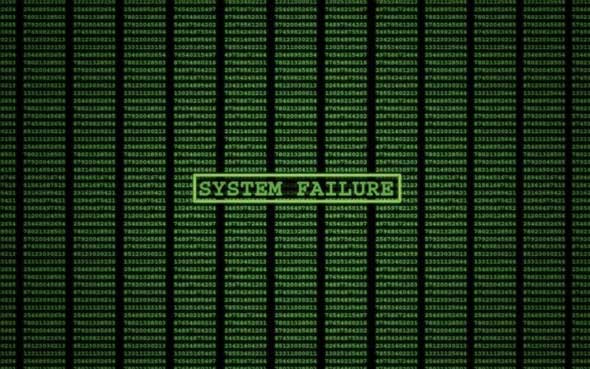“Of all the forms of inequality, injustice in health is the most shocking and the most inhumane.” – Martin Luther King, Jr.
This blog post is an excerpt (and my PA friendly adaptation) from a speech by Dr. Paul Farmer given at Harvard Medical School, Class Day June 5, 2003. Featured in "To repair the world".
The Matrix...
It’s an action film starring that great thespian, Keanu Reeves.
The plot is murky but not uninteresting: his character is a cog in the great wheel of industry and finance, just another programmer working in front of his computer screen in a gray cubicle.
Lives in a big city, looks like Chicago or Toronto.
Mr. Anderson, as he is called, knows something is very wrong with the world but doesn’t know what it is.
It’s “like a splinter in his mind.” There’s got to be more to life than this, he’s certain. He feels most alive under a different alias, his hacker name, Neo.
To make a convoluted story short, Neo is contacted by a certain Morpheus, someone the company drones and police term a terrorist.
Morpheus is played in completely over-the-top fashion by Laurence Fishburne.
If Neo wants to find out what’s bugging him— all the mediocrity and meaninglessness of life in the machine— then he, the fellow named Morpheus, will be only too happy to show him.
Neo hooks up with Morpheus, of course. And Morpheus offers Neo a choice: he can choose to see the world as it really is, to extract that splinter from his mind. Or he can chicken out.
Morpheus outlines Neo’s choice with all the subtlety of a mediocre Shakespearean actor who’s had a few too many vodka tonics.
Morpheus pulls a pillbox out of his stylin’ leather coat. He proffers a red pill and a blue pill.
Morpheus says something like this:
“You take the blue pill, the story ends, you wake up in your bed and believe whatever you want to believe. You take the red pill, you remain in Wonderland and I show you how deep the rabbit-hole goes.”
Like any good action hero with a splinter in his mind, Neo goes for truth, which is all that Morpheus promises. And the truth is ugly.
It’s that Neo, and indeed everyone he’s ever known, is a slave.
The message is clear: Neo’s been duped, deluded by job security and certain material comforts like cool club music and hip garb. It’s all fake.
If You Take the Red Pill
It’s my contention, of course, that a certain amount of red-pill popping is just what we need in medicine and public health. But how many of us want to see how deep the rabbit hole goes?
Do we dare take the red pill? A serious question from a guy who is gagging on the red pill and still falling down the rabbit hole.
As a character in the film says— he’s a bad guy, of course—“ Ignorance is bliss.” But ignorance is not bliss. Ignorance is just that— ignorance— and ignorance and medicine are simply not compatible. Our own red pill may well be more bitter than any other, because it’s easy to argue that, for doctors, as for scientists, the blue pill is an unacceptable option, even if it’s what most of us have swallowed.
If you take the red pill and you’re a medical provider, you see that there’s unnecessary sickness and suffering everywhere on this planet.
You see too that certain epidemics are completely out of control and that there are horrific health emergencies all over the third world.
You see that some people are denied access to the most basic fruits of science, to the tools developed over the past few decades as medicine itself earned its name as “the youngest science.”
You think diseases such as SARS is bad, and it is. But allow me to put this in perspective. As of today, although fewer than a thousand people have died of SARS, several Fortune 500 companies are scrambling to put together a global SARS fund; I’m told that hundreds of millions of dollars have been pledged.
During the 2003 scare, certain airports in Asia installed thermal scanners to identify febrile travelers. All this in the space of a couple months.
All good. But over 8,000 people die every day of AIDS, the leading infectious cause of death in the modern world. And many more die of tuberculosis and malaria: during the course of this year, six million people, most of them children and young adults, will die of these three diseases alone.
Six million deaths, almost all of them preventable with modern medicine, but the red pill reminds us that we have no plan in place to serve those most in need.
And even the newspapers, whose editors and publishers seem to subsist on a steady diet of blue pills, report that the Global Fund to Fight AIDS, Tuberculosis, and Malaria will soon run out of money.
The plagues of the poor don’t seem to interest industry, the press, or even basic science. So it is everywhere.
- Take the red pill and suddenly you see that 40 million Americans have no health insurance and as many more are poorly insured.
- Take the red pill and you see that the bottom billion of this planet don’t have enough food or clean water while in other places, including this country, we are called to subsidize agribusiness and then destroy excess crops or dump them on faltering peasant economies, so delivering their coup de grâce.
- Take the red pill and you wonder why it is that, in the global era of connectivity, millions die of hunger while others battle obesity.
You learn that some companies short-date perfectly good medications and equipment in a process known as “planned obsolescence” while tens of millions will die without ever having benefitted from the discoveries of Salk or Sabin or even Pasteur. This has been going on for some time in the desert of the real, and it’s getting worse.
Why dredge up this dreary stuff?
Because you can change all this
Indeed, we must. It’s urgent.
Sure, it’s utopian, but it’s also feasible. Here’s a glass half full for you: as PAs, you are granted special license to fight for a better world. You can carp about health insurance in a way that politicians cannot because you are merely fighting for your patients.
You can gripe about drug prices in a way that others cannot, for the same reasons. You can even deliver a red-pill speech like this one without being considered a pill yourself.
Because this is what we’re called to do: to fight for the survival and the dignity of our patients, especially the sickest and most vulnerable.
You don’t have to travel far to meet people who receive substandard care.
Many students are astounded at how few of your patients have ever had a medical provider visit them in their homes.
But the red pill suggests that it’s after the patients leave the hospital that many of them have troubles:
- Troubles understanding or following their provider's orders.
- Troubles filling prescriptions.
- Troubles getting to clinic appointments.
- Troubles paying rent or utility bills.
You could address some of these troubles yourselves. Say you’re an orthopedic physician assistant and on the way from the gym to the hospital, you pop by and see the lady who fell and fractured her femoral neck. You helped to put in the hardware and all went splendidly, as you noted in your brief (very brief) op note. She lives on the fifth floor of a run-down public housing building not a mile from the medical mecca in which you train. The elevator’s out. If you’d taken the blue pill, you wouldn’t even know this fact, because she lives in the desert of the real, invisible, it would seem, to the majority of doctors.
Whether a Physician Assistant or Nurse Practitioner or internist or pediatrician or pathologist or cardiac surgeon, we are working for others.
It’s not about us, or our incomes, or our sense of personal efficacy. It’s about what happens to our patients.
After a few long workweeks, there may be moments when you want to take the blue pill. Don’t do it.
Wonderful things are happening in clinical medicine and the allied sciences, in large part because of medicine’s embrace of science.
The yield of this embrace has been nothing short of marvelous. No branch of medicine has been untouched.
From pathology to oncology to infectious disease, the revolution continues. But for those who take the red pill, we are obliged to see the dark side of progress.
More and better discoveries, every day, but an erosion in our ability to use them wisely and equitably.
More capacity to engineer new therapies but a lack of commitment to directing our efforts toward the world’s great killers.
In my field, there have been many victories, certainly. But there hasn’t been a new class of antituberculosis drug discovered in decades. As of October 2014, there are no effective vaccines for AIDS, TB, or malaria— the big three modern plagues. Visits to the lifeworlds of the sick help us see how terribly behind we are in the equity arena.
We’re failures in the equity department.
There are many reasons to visit patients in their homes:
- They help us understand why excellent in-hospital care can come to naught if we lack an equity plan.
- Visits help us understand why prescriptions go unfilled, why appointments are missed, why medications are taken incorrectly or not at all.
- Visits connect us to people whose lives are very different from our own.
This failure, which you can see for yourselves, is emblematic of the even more shocking failures one can see when one leaves behind nationality, a blue -pill side effect, and takes on the globe’s medical problems.
If you’ve agreed with me so far, then you’ll see all the vast promise of modern medicine and also the dismal state of our global village.
More and more for fewer and fewer
It’s true in so many realms, but it’s excruciatingly so in medicine and public health.
Martin Luther King is credited with having said the following: “Of all the forms of inequality, injustice in health is the most shocking and the most inhumane.”
Taking the red pill is a scary process.
There are those of you out there today who threw back the red pill but are now reaching for the ipecac.
And who wouldn’t be?
We live in a world of medical haves and have-nots, a world in which most of the bottom billion have no modern medical care at all, a world in which current trends promise that the situation will get worse during the early years of your medical practice.
What are the boundaries of your world?
Over time, they will shrink to a hospital or clinic, and all you’ll want to do when you leave work will be to watch an action film by yourself. Or listen to some music. Or do whatever it is that transports you out of the desert of the real.
But in your heart, and in your practice, you know that most of the boundaries are ones we create ourselves.
They’re boundaries we erect in order to lessen our pain, not the pain of others.
Where exactly do you fit in?
Taking the red pill and seeing the world of the sick as it is today leads us to painful choices. I’m not seeking to be Manichaean: the choices before you are not between good and bad.
They’re between doing good and doing better.
To do better, don’t we have to take that red pill and fight? Your generation is going to have to answer this question. Because unfortunately, as Morpheus says, you and I have run out of time.
Of course, the clock isn’t really ticking on us. It’s ticking on others. Again— how many people have died of treatable diseases during the time it took you to read this blog post.
Allow me to leave you with two take-home messages.
First, apply the Golden Rule in your practice — especially during that last admission, in the wee hours of the morning or at the end of a long day in the clinic. Or to a particularly difficult or crabby patient. Could you ever care as much about her as you do about, say, your own mother? Could you ever love someone as much as you love yourself or your own child? The answer to these questions may well be “certainly not,” but at least the red pill pushes us to ask them.
Second, make home visits now and again. Don’t buy the received wisdom about “respecting boundaries.” What’s wrong with helping housebound patients wash their dishes? Or helping hut-bound patients transform dirt floors into cement floors? Break down boundaries. Think outside the box.
Do you want to wake up some day and discover that your life has become dim, without color? That you took the blue pill?
Even though your ectopic soul, stowed away, say, in your left axilla, forgotten, neglected, was exhorting you all along to make the leap, to take a chance?
You know the questions. The answer is out there, and you will find it if you want to.
Now you know. And knowing, as another action figure was fond of noting, is half the battle.



















Stephen, I really appreciate this article. I’ve recently just decided to take the perverbial “red pill” and this was a refreshing spin on things. We could easily look at this from a cynical and burnt out point of view, but as you said we have a special license to do something about this. I thoroughly enjoyed reading this article. Much appreciated the dedication you have towards medicine.
-Austin Page
Proverbial* 🙂
Thank you Austin,
If you haven’t yet read Tracy Kidder’s book “Mountains Beyond Mountains” based on Paul Farmer’s work in Haiti, I would really recommend it. I have read it once and listened to it twice and each time I am reminded why I went into medicine and the true challenges we are all facing.
It is so easy and comfortable to swallow the blue pill and there are a million excuses I have had in my own life to justify a blue pill regimen. But, it is my belief, that once we swallow the red pill we are not only doing right by our patients but we too will live a much happier and fulfilling life.
I believe we all wen’t into medicine to fulfill the same purpose and that is to help people. And although everyone needs help, and can benefit from compassionate healthcare at all socioeconomic levels, our success in medicine will be judged not on how we treat those who have the greatest access, but those who have the least. This is going to involve some changes in how we distribute care and how we pay for it. I am optimistic that in my lifetime I will see greater equality in healthcare and the evolution of a system that does not favor those who were born into the right class, but is equally available to everyone who needs it. The money is there, medical providers want the change, we just need to demand it, which is going to involve some pill swallowing, or maybe a lack there of 🙂
Thanks so much for you comment!
Stephen